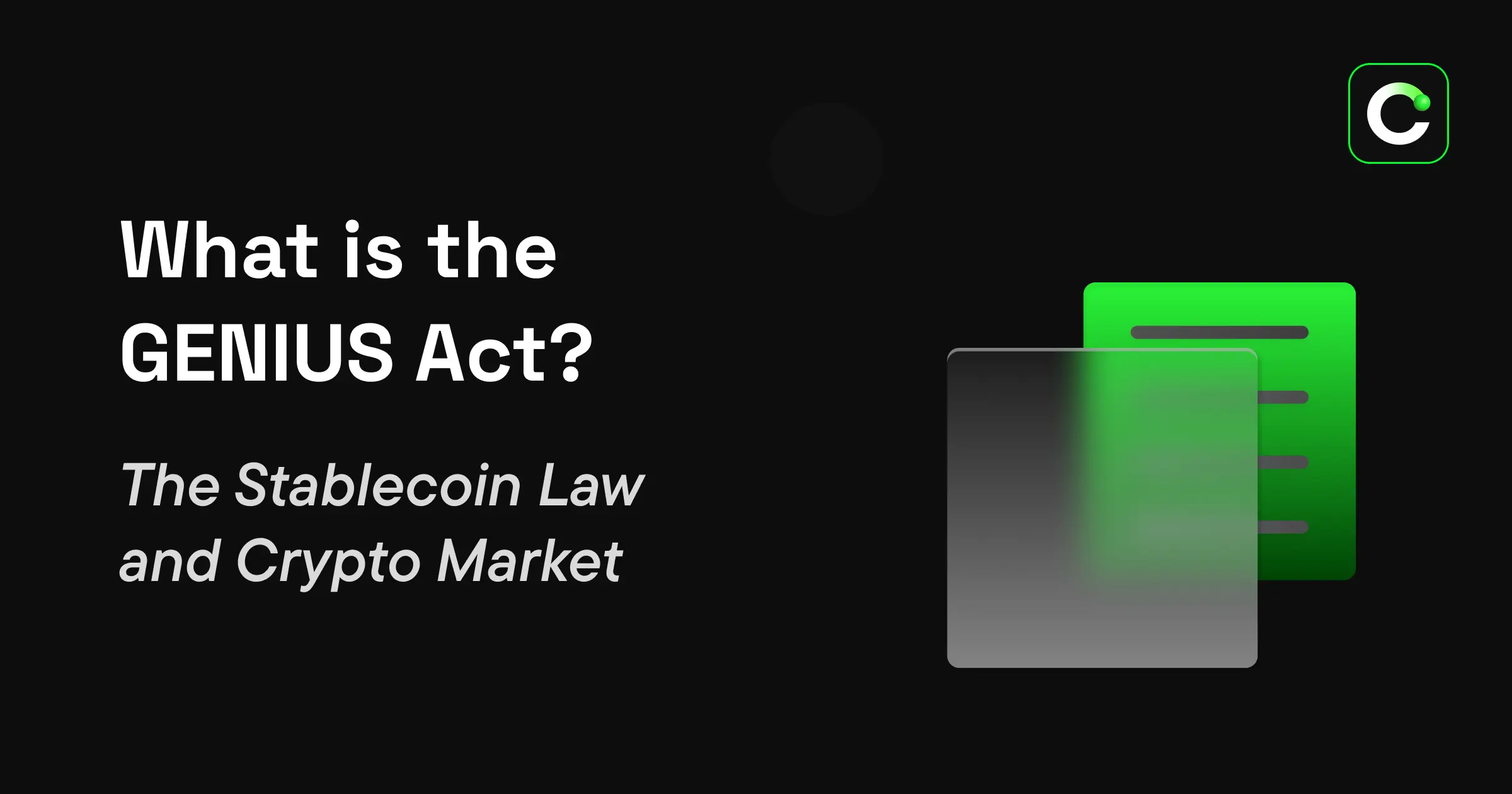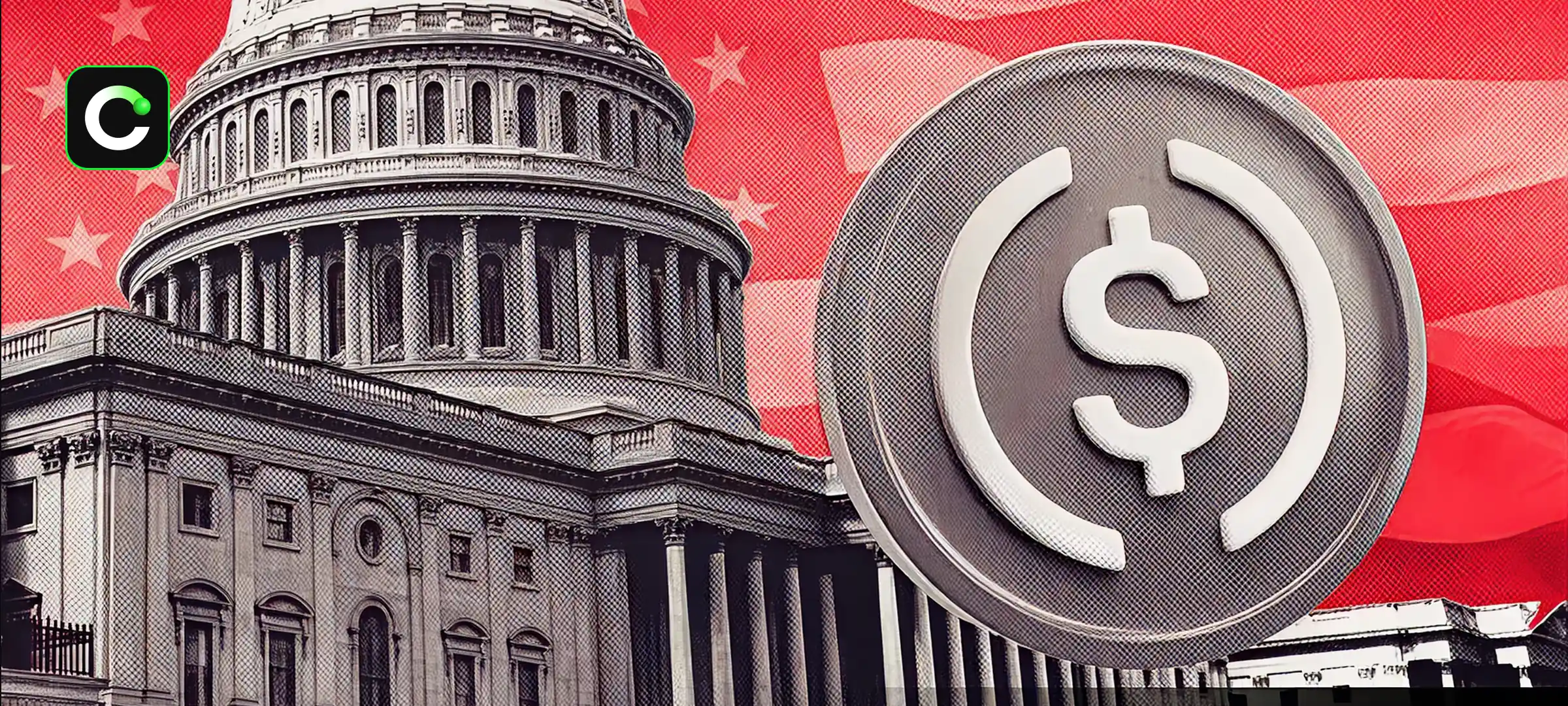What is GENIUS Act? The Stablecoin Law & Crypto Market

Cryptocurrency Exchange

GENIUS Act is a draft bill prepared to regulate stablecoins in the United States. Abbreviated from the phrase
“Gaining Regulatory Insight for a New United States”, this bill has come to the agenda with the aim of ensuring stability in the digital asset market and securing the use of stablecoins. The increasing prevalence of dollar-pegged coins in the
cryptocurrency sector has heightened the need for regulation, and the GENIUS Act aims to address this need. For this reason, it is closely followed by both investors and industry representatives.
What is Stablecoin?
A stablecoin is a digital asset that usually pegs its value to fiat currencies such as the US dollar. They were developed to reduce volatility in the cryptocurrency market and to provide more stable use in daily transactions. Popular stablecoins such as
USDT
,
USDC
, and BUSD serve as a safe bridge for crypto users. These coins protect investors from market fluctuations while also facilitating trading transactions. However, the lack of regulation has, over time, led to debates about security and transparency. Regulations like the GENIUS Act are of critical importance for ensuring that stablecoins can be used more securely in the future.
GENIUS Act: What is the GENIUS Law?

The GENIUS Act is a comprehensive draft bill proposed to regulate the
stablecoin market. The bill stipulates that companies issuing stablecoins must meet certain criteria, report their reserves transparently, and provide legal guarantees to protect user funds. The goal of this law is to both increase user confidence in the stablecoin market and support stability in the financial system. Known as the “Genius law,” this regulation is closely monitored not only in the United States but also in the global crypto ecosystem.
What Does GENIUS Act Mean?
GENIUS Act, in its full form, represents the phrase
“Gaining Regulatory Insight for a New United States.” The core meaning of this draft bill is to place stablecoins within a legal framework. In other words, the GENIUS Act is a regulatory package aimed at making the integration of stable crypto assets into the financial system safer.
What Does the GENIUS Law Include?
The GENIUS Act contains comprehensive provisions to protect security, transparency, and user rights in the stablecoin market. Submitted to the US Congress, this draft bill imposes a wide range of obligations on stablecoin issuers, from reserve management to audit processes. The aim is to create a safe usage space for investors as stablecoins integrate into the financial system.
The prominent articles of the law can be summarized as follows:
-
Reserve requirement: Stablecoin issuers must hold an equivalent amount of US dollar reserves to back the coins they issue. For example, 1 USDT must be backed by 1 US dollar or low-risk assets such as short-term Treasury bills.
-
Auditing and reporting: Issuers must publicly disclose the amount of reserves through monthly reports, while large-scale issuers (over $50 billion) must publish audited annual financial statements.
-
Capital and liquidity rules: Federal and state regulators set specific capital and risk management standards for stablecoin issuers; however, these entities are exempt from the traditional standards applied to banks.
-
User priority: In case of bankruptcy, the claims of stablecoin holders are prioritized over those of other creditors.
-
AML/KYC obligations: Issuers are subject to the Bank Secrecy Act and must comply with anti-money laundering, Know Your Customer (KYC), and transaction monitoring programs.
-
Foreign stablecoin regulations: Foreign stablecoins not licensed in the US may only be traded if they meet the Treasury Department’s compliance requirements; they must also have the technical capacity to burn tokens or freeze transactions if necessary.
-
Role of banks: US banks are authorized to hold stablecoin reserves, use blockchain, and issue tokenized deposits.
-
Stablecoin classification: It is explicitly stated that payment-purpose stablecoins are not considered securities.
These provisions aim to ensure transparency and investor protection in the stablecoin market while strengthening the US’s regulatory leadership in the global financial system.
How Does the GENIUS Law Affect the Cryptocurrency Market?
The adoption of the GENIUS Act has the potential to create significant changes in the cryptocurrency market. First, the establishment of a more transparent and reliable framework for stablecoins may increase the interest of both individual and institutional investors in the sector. Moreover, this law reduces risks in transactions carried out with stablecoins, contributing to greater stability in the market. However, it is possible that compliance with the regulations will increase costs for companies. In the long term, the GENIUS Act may make the stablecoin market more reliable on a global scale and serve as a model for other countries. In developing markets such as Türkiye, the adoption of such regulations could reflect positively on the sector by increasing user confidence.
Legal Notice
The information, comments, and evaluations contained in this content do not constitute investment advice. This content is not intended to be prescriptive in any way and is intended to provide general information. It does not constitute investment advice. CoinTR cannot be held responsible for any transactions made based on this information or any losses that may arise.
Recommended
- Cryptocurrency ExchangeWhat is a Stablecoin? 2025 Stablecoin List The cryptocurrency market is known for its high volatility, posing significant risks for investors. Stablecoins provide a secure alternative by maintaining a stable value. Typically pegged to fiat currencies, precious metals, or other assets, stablecoins serve as a safe haven for investors and traders. But what is a stablecoin, how does it work, and what types exist? Let’s dive into the details. What is a Stablecoin? A stablecoin is a type of cryptocurrency designed to maintain a stable value,
2024-11-24
- Cryptocurrency ExchangeWhat are Bear and Bull Markets? In financial markets, the terms bear market and bull market are often used to describe overall trends. A bear market represents periods of declining prices, while a bull market refers to rising trends. These terms are particularly important in the cryptocurrency market. But what exactly is a bear market, what is a bull market, and how long do these periods last? Here’s a detailed guide. What is a Bear Market? A bear market is a period when asset prices experience a prolonged decline, typically
2024-11-24
- Cryptocurrency ExchangeWhat is Blockchain Technology? Blockchain is a digital ledger technology where data is stored on a distributed network without the need for central authority. As the backbone of cryptocurrencies such as Bitcoin, blockchain is now being used not only in the financial world but also across many different industries. Blocks record transactions, and each block is linked to the previous one, forming a chain. This structure makes data immutable, tamper-proof, and transparent. Key Features: Decentralization: Not controlled by a s
2024-11-28


